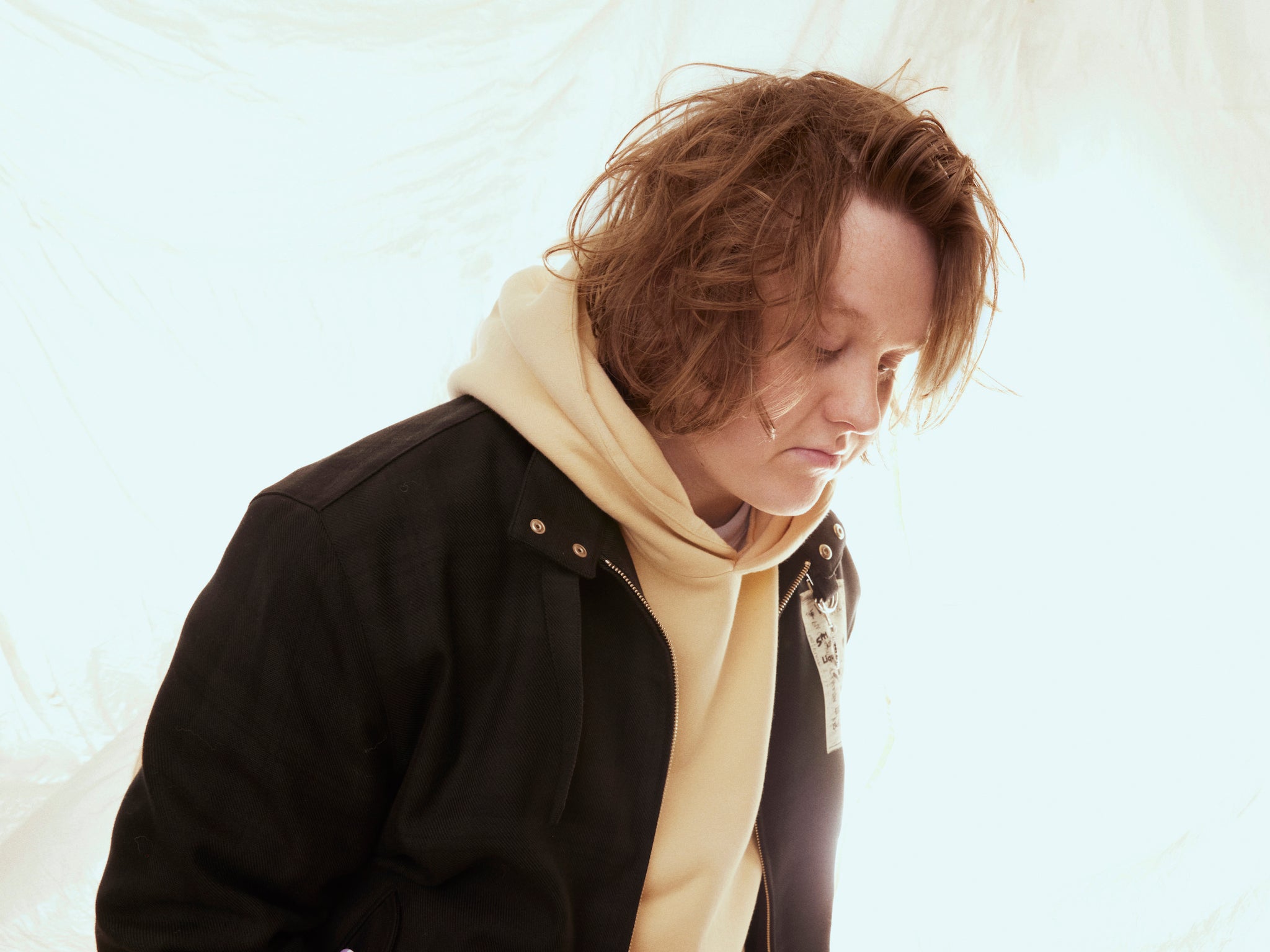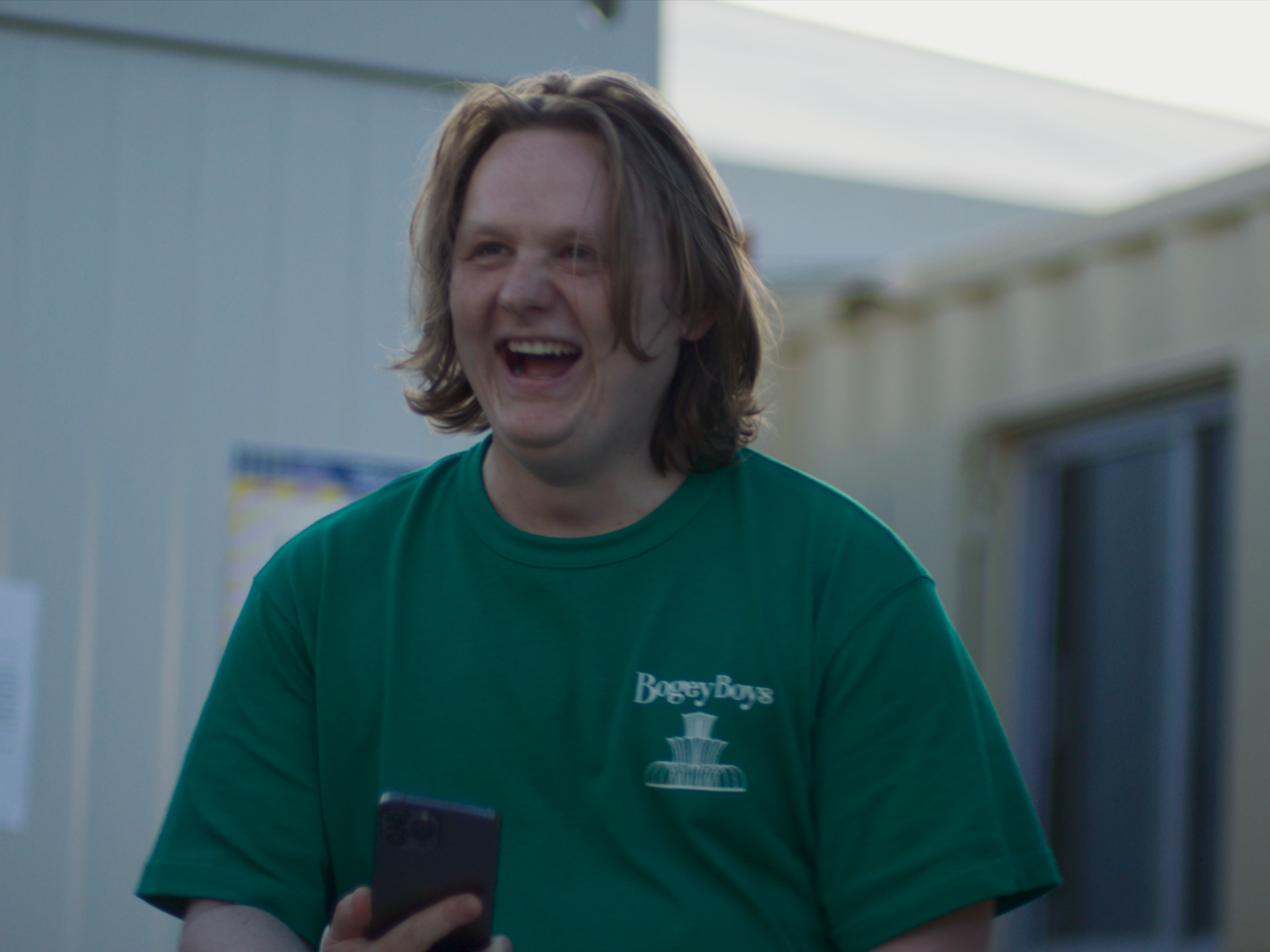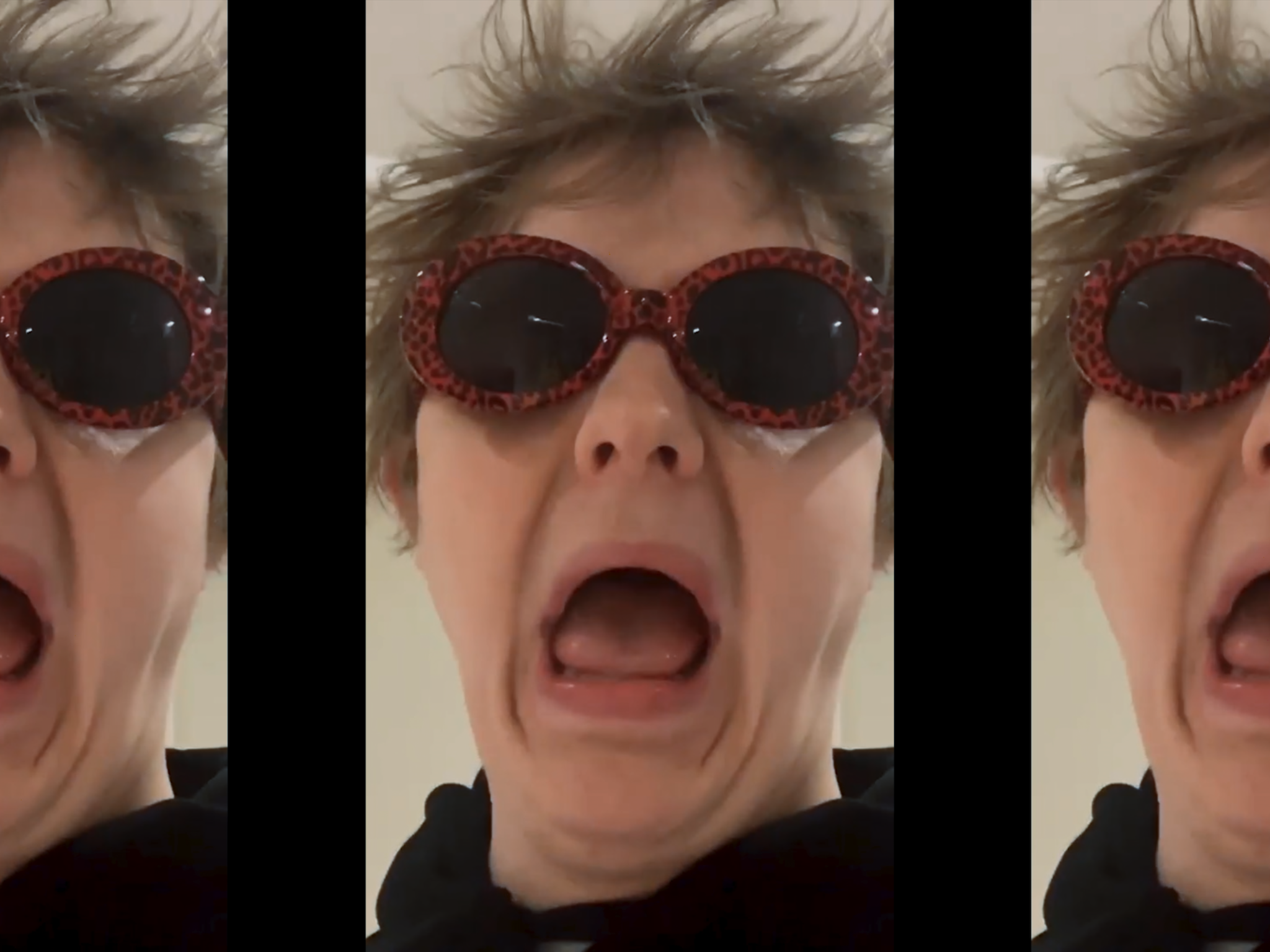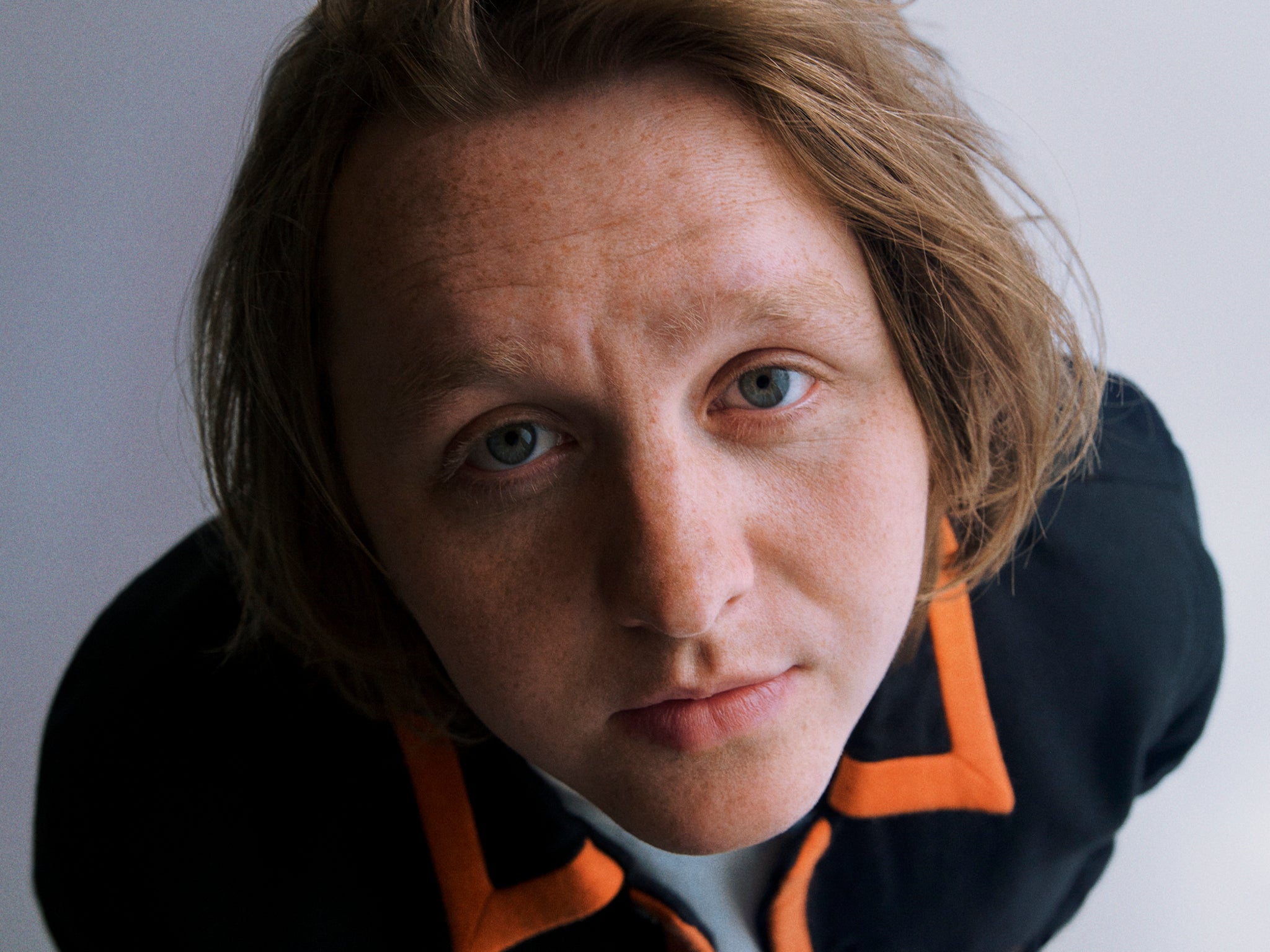Lewis Capaldi: ‘I sound like a Paolo Nutini knockoff – or if Adele was a guy and not as good’
The billion-selling singer-songwriter talks to Helen Brown about his candid at-home documentary, his mate Ed Sheeran, and why he has no desire to be ‘chiselled’


I haven’t got to the point where any of this feels normal to me yet,” says Lewis Capaldi. He points out that we’re speaking “six years, to the day” since he released his first single, “Bruises”, which quickly racked up 28 million plays on Spotify, making the Glaswegian the fastest unsigned artist to reach 25 million streams on the platform. The following year he wrote a song about the loss of his grandmother – “Someone You Loved” – that would be streamed a staggering 2.8 billion times.
Now “Forget Me” – the lead single from his second album, Broken by Desire to Be Heavenly Sent – has turned platinum in the UK, and he’s still finding his success “just... pfffft... just f***ing bizarre, y’know? I don’t think it will ever feel normal.”
Video-calling from a hotel room in Atlanta in the middle of his US tour, Capaldi seems more settled in himself than the sweary joker he became in earlier interviews. At 26, he’s also more sweetly baby-faced. He shrugs and continues: “I still feel out of my depth all the time. And I don’t think that’s a bad thing. It’s fine to feel out of your depth. But I have to remind myself not to pile onto myself, not to give myself a hard time. Because I’m trying to go easier on myself with the self-talk these days. Take breaks. Be calm. Because I used to think I’d just go until the wheels came off...”
Fans will be able to see just how close Capaldi came to throwing his tyres in 2019 in the new Netflix documentary Lewis Capaldi: How I’m Feeling Now. It’s directed by Joe Pearlman, best known for making the near mockumentary Bros: After the Screaming Stops. Knowing how that film turned the struggles of the Eighties pop sensations into a succession of memeable moments, did Capaldi feel any trepidation about putting his private life under Pearlman’s microscope?
“I didn’t know what to expect, to be honest,” he says. “At no point did I think: the world needs to hear my story. I’m the first person to acknowledge there are too many f***ing music documentaries being made just now. But they came to us just before Covid, when I was supposed to be going on tour. I thought: ‘Oh, I’ll be playing these shows and it’ll be like a hero’s documentary. But then Covid came along and forced us to make a much more intimate film. I didn’t expect to be talking about my family and my mental health.”
Shot mostly in his parents’ home in Glasgow – cockapoos on the sofa, WWF trading cards in Capaldi’s childhood bedroom, interviewees leaning against the fridge – the film tracks Capaldi’s journey from quirky kid (with a glitchy wink), through his early songwriting days and underage gigging, to the Wembley gig during which his mounting anxiety and twitching shoulder forced him to leave the stage. Although internet trolls argued that Capaldi’s jerking body was a consequence of drug abuse, he was eventually diagnosed with Tourette syndrome, which helped him make sense of his lifelong tics.
He tells Pearlman: “When I have a panic attack, it feels like I’m going insane, completely disconnected from reality. I can’t breathe. I can’t feel my breath going in. I get dizzy. I feel like there’s something happening to my head. I’m sweating. My whole body starts to do what my shoulder does. Like pure convulsing. The big thing for me with it is, I’m always going to feel like this now, this is me. F***. This is it. Either I feel like I’m going to be stuck like that for ever, or I’m going to die.”
Today he admits: “I didn’t realise how much my anxiety and Tourette’s was taking over my life until I watched [Pearlman’s footage] back. When I saw the first draft, it was so depressing, I was surprised I didn’t die at the end!” He grins. “I mean, there’s always the sequel...”

Much of the documentary’s charm comes from the relatable normality of the Capaldi clan and Lewis’s old schoolfriends. He agrees that “it’s good because of those juxtapositions. I haven’t seen a documentary where the contrast between someone’s home life and their ‘thing’ is that glaring. Some documentaries feel like propaganda, but this... really isn’t.” And he concedes that he did feel nervous about putting his parents on film. “My mum’s a nurse, my dad’s a fishmonger. It’s not very glamorous!”
His parents’ contributions, though, are some of the most emotional. His father Mark reveals that Lewis can sometimes spend up to seven hours on the phone with his mother Carol as she strives to talk him down from a panic attack. In one of the most moving scenes, Carol breaks down and asks to stop filming when she talks about her sister, who died by suicide when Lewis was just six. His aunt’s death inspired Capaldi’s song “Before You Go”, on which he puts himself in his bereaved mother’s shoes as he sings: “Was there something I could’ve said to make your heart beat better?”
When you’re at your lowest, that’s when you find out who you are
He tells me that until he saw the documentary, he had never seen his mum watching him perform the song live. “And I’d never seen her talking about her sister like that. People are sometimes more comfortable saying things to a camera than they are to each other.”
Capaldi feels that he has always channelled his “sadder feelings” into his songs for the same reason. “I think our grief, our pain, connects us more than our happiness,” he says. “When you’re at your lowest, that’s when you find out who you are.” He knows that when he’s feeling happy, then “pretty much anything on the radio will do. But when I’m down, then I’ll seek out the songs I need. Radiohead are occupying all of my playlists at the moment. A song like ‘True Love Waits’? It’s just outrageous how that leaves you feeling so f***ing sad. You feel so connected when you’re hearing somebody’s deepest melancholy. The depths of despair that Thom Yorke is expressing in that song are so beautiful when you’re feeling the same... it’s a lovely feeling, to know we’re all suffering together.”

He gets a similar response from his own fans: “I meet people at gigs who say they played ‘Someone You Loved’ at a cousin’s funeral. Or people whose family members have committed suicide will want to talk about ‘Before You Go’. My happiest song is probably ‘Hollywood’, and I’ve never had anybody come up and want to open up to me about that one. I like the feeling that a song I’ve written has made somebody feel comfortable enough that they can come up and talk to me about their darkest, most personal moments.”
By contrast, Capaldi won popularity on social media by clowning around while puncturing myths of the celebrity lifestyle. He donned Dame Edna sunglasses and mimed along with boy sopranos in a church choir. He photographed himself googling his rumoured “net worth” versus his actual bank account. He made jokes about the fact that he doesn’t look like the standard yoga-toned pop star, and – having recently filmed the video for “Forget Me” posing pastily in his swimming trunks – remains proud that he has never felt the need to conform to the standardised pop-star physique.
“I exist as I am,” he says. “People feel an affinity with the way I look. Don’t get me wrong, I am a bit heavier than I would like to be right now. But I have no desire to be chiselled. To have a six-pack. That sounds boring and time-consuming to me. And I think it’s important that there are people like me and Lizzo – who’s great – to show people you don’t have to be stick-thin or built like a f***ing brick s***house to be successful.” He tips his head to one side. “But it is weird when you walk around some of these [A-list] parties, and you do think, ‘I’m a bit of an odd one out here.’ I’ve had some criticism on Twitter recently for the clothes I wear to things. I just stick with trainers, jeans, T-shirt. It’s an enduring look! But also: who gives a f*** what I’m wearing?!”

He also explains that, while his social media presence started out as a means of keeping things real – “being 100 per cent myself, fully me” – he ran into problems when “what I was doing then became a commodity”. It became part of his brand? “Yeah. That word. I’d hear: ‘Your brand is “being silly”. Do more of that.’ It left me questioning myself again: is that the f***ing person I am? I mean, it is. But...” He sighs. “In your twenties you learn a lot about who you are as an adult. It’s weird doing that when you’re famous, when there are these videos of you that live online for ever. Everyone else has an opinion about who you are, too.”
Capaldi tackles this subject on new song “The Pretender”. He hums a few bars for me, including a line in which he offers to transform into “whoever you want me to be”, and explains: “That was me talking about that imposter syndrome. I do have moments where I’m thinking, ‘Oh, that song shouldn’t have done that well.’ I really thought ‘Someone You Loved’ shouldn’t have done as well as it did. It’s like a defence mechanism, too. Your brain’s stopping you from becoming a completely insufferable c***...” Another shrug. “And also, I do have to put on a face, you know? This is a public-facing job. Sometimes you’re going to have to go out and say everything’s great when you don’t necessarily feel that way. We all do, don’t we?”
One of my earliest conversations with Ed Sheeran was about losing my sense of the value of money
Capaldi says he’s also retreated a little from his social media feeds, because “my phone became quite a big thing for me after my first record. I was on Instagram a lot. Not because I had to, but because I enjoyed doing it. It was brilliant. I still do love it. But I really need to put a cap on the time I spend staring at a screen, because whenever I looked up or went out, I would get overwhelmed. I was just so used to looking at the screen. And I would look at s****. Any pish. TikTok. It’s mental how it sucks you in.”
With fame comes an inevitable change in scale, and that involves staff. Capaldi is keenly aware that being able to outsource much of his basic life admin leaves him with even more time to either mess about online or get trapped in his own “racing thoughts”. “When you take away the morning alarm, getting out of the house, working the 9-5... it’s easy to just slip into negative thinking. I think people experienced that in Covid. You had nothing to focus on.” Does he worry about losing touch with normal life? “Yeah. It’s a fear I’ve got. I remember one of my earliest conversations with Ed Sheeran was about losing my sense of the value of money. I’m very, very, very, very concerned about getting too big for my boots, or thinking I’m better than anyone else because I do this f***ing stupid job. It is ridiculous. We are overpaid.”
Capaldi was warned by Sheeran that fame might not change him but would change the people around him, and he was recently advised by his older friend to buy a £1.6m farmhouse on the outskirts of Glasgow. But Capaldi hasn’t been impressed with the amount of investment the “hellhole” (at which he reportedly found a carrier bag full of live frogs) will require, and Sheeran has jokingly offered to buy it from him. Today, Capaldi tells me that he still considers Glasgow home. “I’ve bought a flat there. And I’ve got a flat in London. But the farmhouse is where I see myself ending up in five years or so... it’ll probably take that long to get it fixed, anyway!”
While Sheeran (who co-wrote the song “Pointless” on Capaldi’s new album) has been hitting out at music critics lately, Capaldi says he still “enjoys reading reviews of my music... even the bad ones. Thomas H Green of The Arts Desk said I sound like ‘a constipated Hozier’ and I thought that was hilarious. I think I sound more like a Paolo Nutini knockoff. Or like if Adele was a guy and not as good.” He grins, then rallies to his friend’s defence. “I’d say that Ed has been at it a lot longer than me, and he does get a lot of unfair criticism. I think he’s one of the best songwriters of the past 30 years. But I think he gets overlooked because of his popularity.”
My twitch can go mental because when I start doing something good, that’s when I stress that I’m going to f*** it up
Sheeran is just one of many co-writers to get a credit on Broken by Desire to Be Heavenly Sent. Pearlman’s documentary exposes Capaldi’s struggle to turn out emotionally authentic material by committee in LA writer’s rooms. “Making an album is a f***ing slog,” he says. “Sometimes you walk into those rooms and everything just clicks. But you’re in the weeds quite a lot with it, too.” He shakes his head. “I’ve sat down at a piano for an hour and hated myself before something comes out. People talk about songwriting being cathartic, and I would agree to a certain degree. But catharsis isn’t always a good feeling, you know? Catharsis can be really painful. My twitch can go mental because when I start doing something good, that’s when I stress that I’m going to f*** it up.”
He tells me his favourite song on the new album is probably “How I’m Feeling Now”, “which is the first song I’ve written about my mental health”. But he also really likes “Wish You the Best”, which, he says, is the last song he wrote. “I’m really bad with change and moving on,” he explains. “I look at people I went to school with on Instagram, and they’re having kids or buying houses with a partner, and I have a really hard time with that. You can feel things passing you by. I know I’m not exactly 70 years old or whatever, but it does feel like a chapter in your life is closing when you don’t know those people any more.” He says he’s put some of those emotions into the story of a relationship ending for the song, because he feels that break-ups can trigger that “selfish thing in you that wants to hold on to the past. That slight anger in the feeling of abandonment. But you never actually tell them that. You just say ‘I’m pleased for you’, and you swallow the other stuff.”

I do know that Capaldi is in a relationship at the moment, and he tells me his girlfriend is “great, amazing. It’s good to have somebody there after so long not having that.” He also says that he has “really cut back on my drinking. It’s not like I was an alcoholic, waking up boozing or whatever. But I enjoyed the party a little bit too much and it made me anxious.” He thinks he has drunk alcohol “maybe... five times in three months. I’ve been trying to exercise. Or just get outside of the house. Because I’m someone who likes to stay indoors, just working on music. But I’ve been getting out of my own f***ing bubble.” And it’s paid off. “My Atlanta gig, last night? That was my best ever night for tics on stage.”
But he would also like to reassure the many people with Tourette’s out there: “If I’m tired, stressed, jet-lagged, then the tics will be back and that’s fine. I’m very lucky that if my tics are really bad, I can cancel and that’s not a world-ending thing. But I think about this seven-year-old kid – his mum messaged us, and I think his name was Leo – and the thought of him having to go to school every day. How horrific that is for him on certain days, and he has to do it.” He’s visibly moved by this boy’s plight.
“I want kids like Leo to know that Tourette’s doesn’t have to get in your way. You might get people bullying you, taking the piss, whatever. But it doesn’t define you in any way. It’s never, ever stood in the way of me doing what I love, and it shouldn’t stop you from succeeding either. I might have the odd twitch on stage, and when I’ve been open about it, I found that for the most part people have been very understanding and compassionate.” He smiles and nods. “I can still do what I need to do. There’s nothing to be ashamed of.”
‘Lewis Capaldi: How I’m Feeling Now’ is available to watch on Netflix now; ‘Broken by Desire to Be Heavenly Sent’ will be released on 19 May via EMI Records
Join our commenting forum
Join thought-provoking conversations, follow other Independent readers and see their replies
Comments


Bookmark popover
Removed from bookmarks